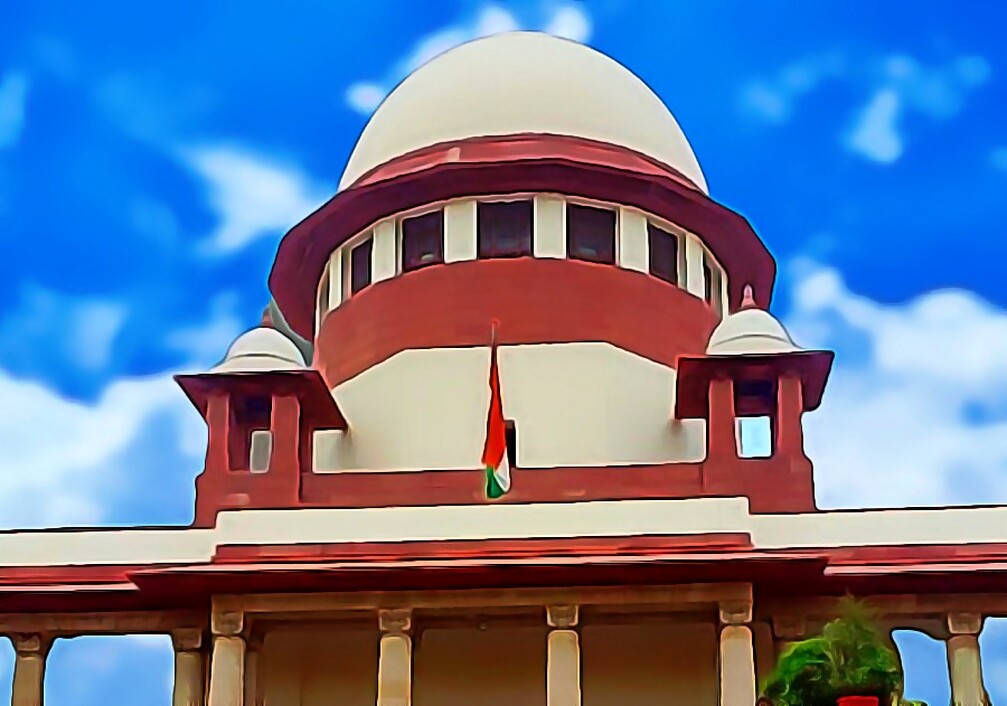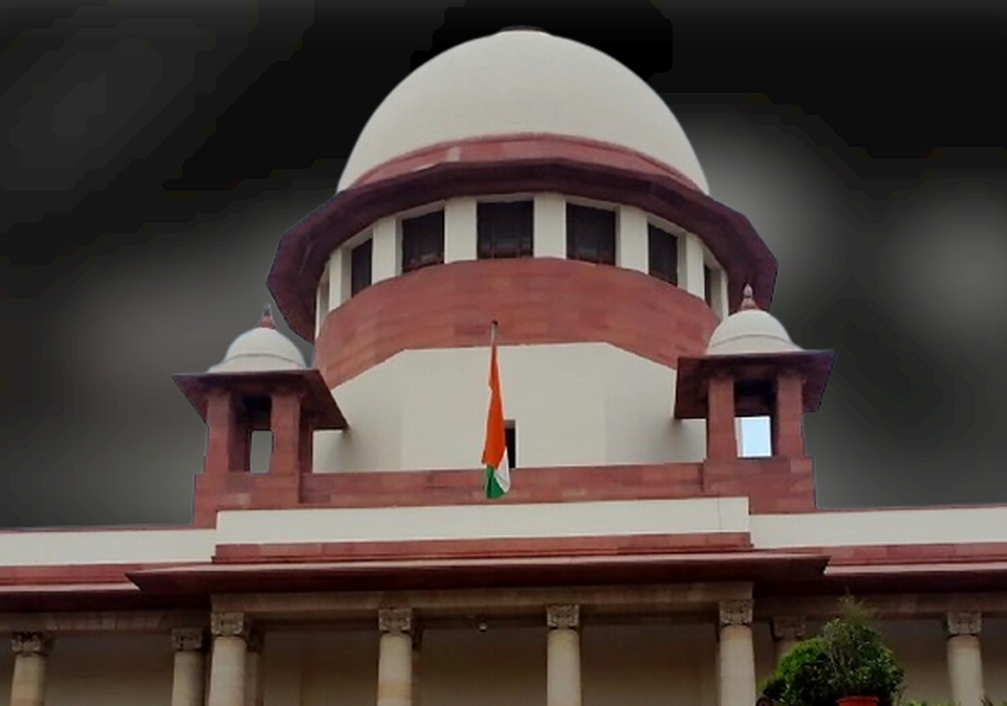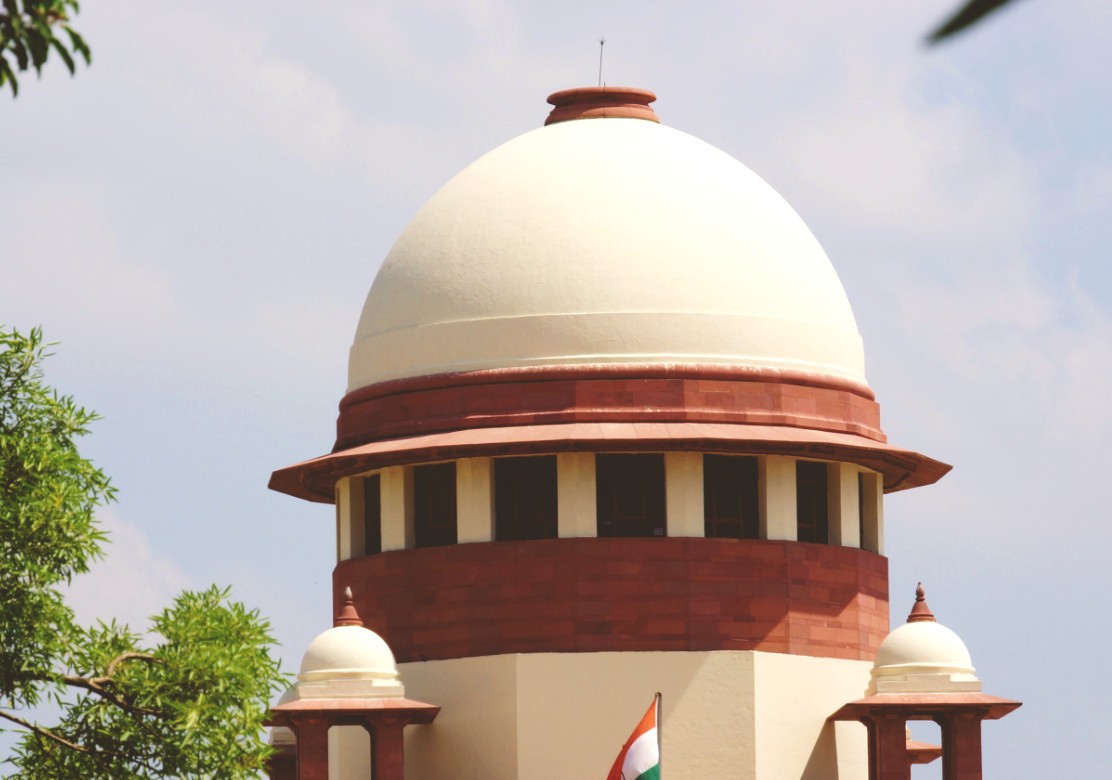Proviso of Rule 5 Order 22 CPC is only an enabling provision; Appellate Court can consider findings of Subordinate Court while taking a final call on the issue of legal representatives: Supreme Court
Justices A.S. Bopanna & Sudhanshu Dhulia [30-04-2024]

Read Order: SWAMI VEDVYASANAND JI MAHARAJ (D) THR LRS v. SHYAM LAL CHAUHAN & ORS [SC- CIVIL APPEAL NOS. 5569-5570 OF 2024]
LE Correspondent
New Delhi, May 2, 2024: While remitting a civil matter to the Patna High Court for fresh decision on substitution of legal representatives, the Supreme Court has observed that in the course of dealing with the report sent by the Subordinate Court under Order 22 Rule 5 of the Code of Civil Procedure, 1908, the Appellate Court may consider the findings of the Subordinate Court and then give its reasons before reaching any conclusion.
Respondent Nos.1 to 4 were plaintiffs in a civil suit where Swami Shivdharmanand Ji Maharaj @ Deo Shankar Tiwary (Swami Shivdharmanand) was one of the defendants. It was a title suit seeking declaration regarding the suit property situated in Bihar. The suit was dismissed by the Trial Court. The First Appellate Court allowed the appeal and decreed the suit. Consequently, the defendant Swami Shivdharmanand filed a second appeal, which is still pending before the Patna High Court.
Meanwhile the defendant, who had filed the second appeal passed away in 1999. There were two claimants, or successors of the Gaddi of Swami Shivdharmanand, who sought substitution in place of Swami Shivdharmanand in the Second Appeal. These were Swami Triyogan and Swami Satyanand who is respondent no.6 in the present appeal.
Initially, Patna High Court directed the Trial Court to conduct an enquiry in the matter as laid down under Rule 5 of Order 22 of Civil Procedure Code, for the purpose of substitution. The Trial Court did its enquiry and submitted the report before the Patna High Court, where the findings were that Swami Satyanand (i.e., present respondent No.6) is the Legal Representative (LR) of Swami Shivdharmanand and was liable to be substituted as the appellant before the High Court. Objections were filed to the said report by the other party, which is the predecessor-in-interest of the appellant.
The Patna High Court instead of giving a decision based on the report and the objections, passed an order allowing both the parties (Swami Satyanand and Swami Triyoganand) to be substituted as LRs to Swami Shivdharmanand. Thereafter, Swami Satyanand was ordered to be substituted as the appellant in the pending Second Appeal.Swami Triyoganand too passed away in 2018 and the Patna High Court went ahead and passed the order in favour of Swami Satyanand on the ground that the Trial Court in its report has found Swami Satyanand to be the LR of the appellant-Swami Shivdharmanand, and it was herefore needless to adjourn the matter any further.
The Division Bench of Justice A.S. Bopanna & Justice Sudhanshu Dhulia was considering the appeals arising out of the order pending Second Appeal before the Patna High Court.
The scenario before the Bench was that Swami Vedvyasanand had passed away and now Sadhavi Sarojanand, who claimed to be the legal heir of Swami Vedvyasanand, was seeking substitution as appellant in the pending second appeal before the High Court.
Referring to the judgment in Jaladi Suguna v. Satya Sai Central Trust [LQ/SC/2008/1088], the Bench said, “The only purpose of substitution is the continuation of the case. The substitution as LR in a case by itself will not give any title in favour of the person so substituted. It only confers the right to represent the estate of the deceased in the pending proceedings.”
The Bench was of the view that the High Court while substituting Swami Satyanand (Respondent No.6) as the appellant and dismissing the claim of appellants predecessor-in-interest i.e., Swami Triyoganand did not follow the correct procedure.
Placing reliance upon Order 22 Rule 5 of CPC, the Bench explained that the Rule mandates that in case of death of plaintiff or defendant, if a question arises as to whether any person is or is not the legal representative of the deceased party, the court shall first determine such a question. Proviso of this Rule is only an enabling provision where the appellate court may before deciding the question can refer the matter to a subordinate court to try and record its findings which may be considered by the Appellate Court while taking a final call on the issue.
As per the Bench, the High Court had earlier fallen into error by substituting both the claimants as legal representatives of the deceased defendant for the purpose of hearing the appeal and thus, the matter was remanded by this Court. “We are afraid that the High Court has again misread Rule 5 as well as our order, as it failed to consider the objections against the Trial Court report while making its determination on substitution”, it added.
The High Court did not discuss the evidence in support of the claim of the Respondent No. 6 nor did it consider the objections of the other party on such claims. Moreover, there was already another substitution application pending before the Court which was not considered.
The Top Court further held that the Proviso to Rule 5 does not say that the Appellate Court can direct the subordinate court to decide the question as to who would be the legal representative, it only provides that the Appellate Court can direct the subordinate court to try the question and return the records to the Appellate Court, along with the evidence and the subordinate court has then to send a report in the form of a reasoned opinion based on evidence recorded, upon which the final decision has to be made ultimately by the Appellate Court, after considering all relevant material.
“While dealing with the report sent by the subordinate court under Order 22 Rule 5 of CPC, the Appellate Court may consider the findings of the subordinate court and then give its reasons before reaching any conclusion. The words the Appellate Court may take the same into consideration in determining the question used in the proviso to Rule 5 gives discretion to the Appellate Court to make its own separate opinion notwithstanding the opinion of the subordinate court. The proviso cannot be construed to be a delegation of the powers of the Appellate Court to substitute the deceased party, but is merely to assist it in ultimately deciding the issue of substitution. Thus, the Appellate Court may take into consideration the material referred by the subordinate court under Rule 5 of Order 22, CPC along with the objections, if any, against the report while deciding on the substitution of the appellant”, the Bench said.
Thus, the Bench set aside the earlier orders passed in 2019 and remitted the matter back to the High Court for a fresh decision on substitution.
Sign up for our weekly newsletter to stay up to date on our product, events featured blog, special offer and all of the exciting things that take place here at Legitquest.




Add a Comment